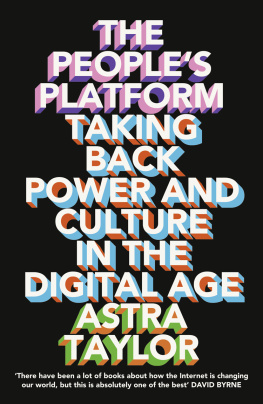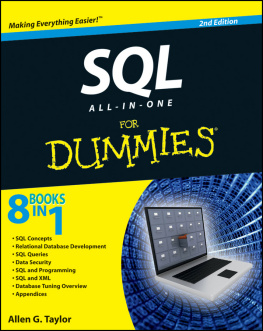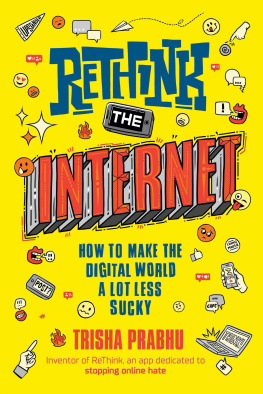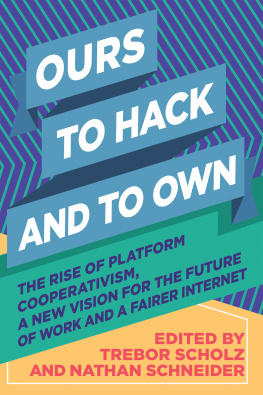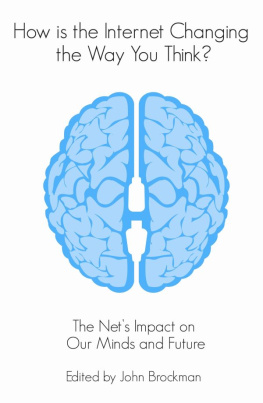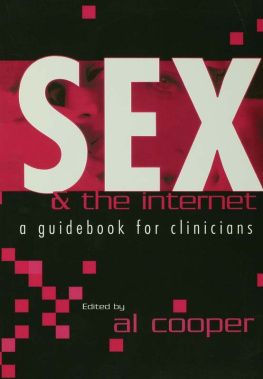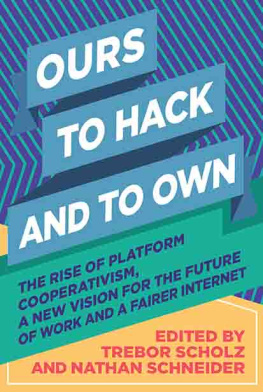CONTENTS

I moved to New York City in 1999 just in time to see the dot-com dream come crashing down. I saw high-profile start-ups empty out their spacious lofts, the once ebullient spaces vacant and echoing; there were pink-slip parties where content providers, designers, and managers gathered for one last night of revelry. Although I barely felt the aftershocks that rippled through the economy when the bubble burst, plenty of others were left thoroughly shaken. In San Francisco the booms rising rents pushed out the poor and working class, as well as those who had chosen voluntary poverty by devoting themselves to social service or creative experimentation. Almost overnight, the tech companies disappeared, the office space and luxury condos vacated, jilting the city and its inhabitants despite the irreversible accommodations that had been made on behalf of the start-ups. Some estimate that 450,000 jobs were lost in the Bay Area alone.
As the economist Doug Henwood has pointed out, a kind of amnesia blots out the dot-com era, blurring it like a bad hangover. It seems so long ago: before tragedy struck lower Manhattan, before
At the time of the boom, however, the prevailing myth was that the machinery had been forever changed. Technological innovation, Alan Greenspan marveled, had instigated a new phase of productivity and growth that was not just a cyclical phenomenon or a statistical aberration, but a more deep-seated, still developing, shift in our economic landscape. Everyone would be getting richer, forever. (Income polarization was actually increasing at the time, the already affluent becoming ever more so while wages for most U.S. workers stagnated at levels below 1970s standards.) The wonders of computing meant skyrocketing productivity, plentiful jobs, and the end of recessions. The combination of the Internet and IPOs (initial public offerings) had flattened hierarchies, computer programming jobs were reconceived as hip, and information was officially more important than matter (bits, boosters liked to say, had triumphed over atoms). A new economy was upon us.
Despite the hype, the new economy was never that novel. With some exceptions, the Internet companies that fueled the late nineties fervor were mostly about taking material from the off-line world and simply posting it online or buying and selling rather ordinary goods, like pet food or diapers, and prompting Internet users to behave like conventional customers. Due to changes in law and growing public enthusiasm for high-risk investing, the amount of money available to venture capital funds ballooned from $12 billion in 1996 to $106 billion in 2000, leading many doomed ideas to be Although the new economy evaporated, the experience set the stage for a second bubble and cemented a relationship between technology and the market that shapes our digital lives to this day.
As business and technology writer Sarah Lacy explains in her breathless account of Silicon Valleys recent rebirth, Once Youre Lucky, Twice Youre Good, a few discerning entrepreneurs extracted a lesson from the bust that they applied to new endeavors with aplomb after the turn of the millennium: the heart of the Internet experience was not e-commerce but e-mail, that is to say, connecting and communicating with other people as opposed to consuming goods that could easily be bought at a store down the street. Out of that insight rose the new wave of social media companies that would be christened Web 2.0.
The story Lacy tells is a familiar one to those who paid attention back in the day: ambition and acquisitions, entrepreneurs and IPOs. Winning Is Everything is the title of one chapter; Fuck the Sweater-Vests another. Youd think it was the nineties all over again, except that this time around the protagonists aspired to market valuations in the billions, not millions. Lacy admires the entrepreneurs all the more for their hubris; they are phoenixes, visionaries who emerged unscathed from the inferno, who walked on burning coals to get ahead. After the bust, the dot-coms and venture capitalists were easy targets, blamed for being silly, greedy, wasteful, irrelevant, Lacy writes. The jokes and quips from the cynics cut deep, making it that much harder for wannabe Web barons to build themselves back up again. But build themselves back up a handful of them did, heading to the one place insulated against the downturn, Silicon Valley. The Valley was still awash in cash and smart people, says Lacy. Everyone was just scared to use them.
Web 2.0 was the logical consequence of the Internet going mainstream, weaving itself into everyday life and presenting new opportunities as millions of people rushed online. The human need to connect is a far more powerful use of the Web than for something like buying a book online, Lacy writes, recounting the evolution of companies like Facebook, LinkedIn, Twitter, and the now beleaguered Digg. Thats why these sites are frequently described as addictive everyone is addicted to validations and human connections.
Instead of the old start-up model, which tried to sell us things, the new one trades on our sociabilityour likes and desires, our observations and curiosities, our relationships and networkswhich is mined, analyzed, and monetized. To put it another way, Web 2.0 is not about users buying products; rather, users are the product. We are what companies like Google and Facebook sell to advertisers. Of course, social media have made a new kind of engagement possible: they have also generated a handful of enormous companies that profit off the creations and interactions of others. What is social networking if not the commercialization of the once unprofitable art of conversation? That, in a nutshell, is Web 2.0: content is no longer king, as the digital sages like to say; connections are.
Though no longer the popular buzzword it once was, Web 2.0 remains relevant, its key tenets incorporated not just by social networking sites, but in just by all cultural production and distribution, from journalism to film and music. As traditional institutions go underconsider the independent book, record, and video stores that have gone out of businessthey are being replaced by a small number of online giantsAmazon, iTunes, Netflix, and so onthat are better positioned to survey and track users. These behemoths harness collective intelligence, as the process has been described, to sell people goods and services directly or indirectly. The key to media in the twenty-first century may be who has the most knowledge of audience behavior, not who produces the most popular content, Tom Rosenstiel, the director of the Pew Research Centers Project for Excellence in Journalism, explained.
Understanding what sites people visit, what content they view, what products they buy and even their geographic coordinates will allow advertisers to better target individual consumers. And more of that knowledge will reside with technology companies than with content producers. Google, for instance, will know much more about each user than will the proprietor of any one news site. It can track users online behavior through its Droid software on mobile phones, its Google Chrome Web browser, its search engine and its new tablet software. The ability to target users is why Apple wants to control the audience data that goes through the iPad. And the company that may come to know the most about you is Facebook, with which users freely share what they like, where they go and who their friends are.
Next page
